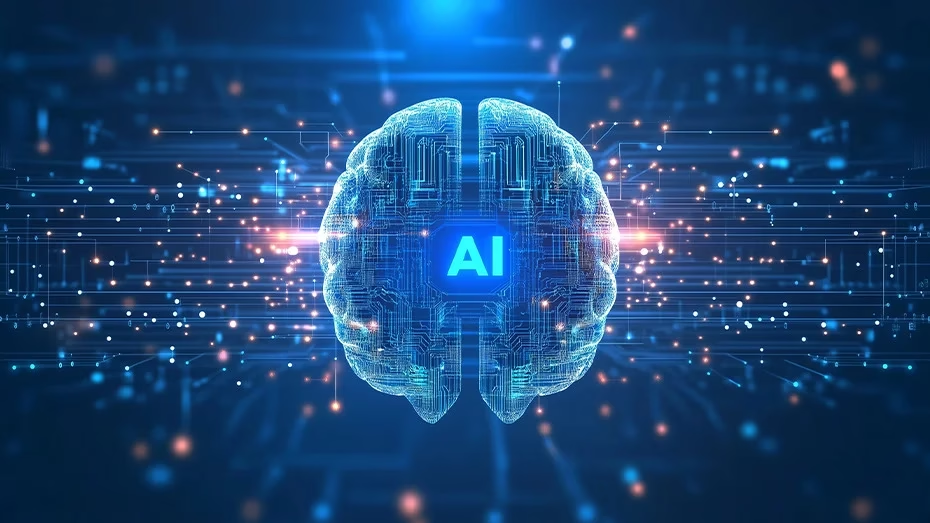The Dawn of a New AI Era
Estimated reading time: 15 minutes
Key Takeaways
- The evolution of Artificial Intelligence has been *breathtakingly rapid*, moving from a futuristic concept to a present-day reality.
- Key areas of focus for “Artificial Intelligence breakthroughs shaping 2025” include the latest AI news and updates, the impact of generative AI, AI-driven scientific discoveries, and navigating AI ethics and regulation.
- AI is shifting from a mere “tool” to an “integral partner” in human-AI interaction. (Source: Microsoft)
- 2025 promises a landscape defined by sophisticated AI models, transformative generative capabilities, accelerated scientific progress, and a critical focus on ethical frameworks.
- Staying informed about these advancements is crucial for individuals and industries alike.
Table of Contents
- Introduction: The Dawn of a New AI Era
- Section 1: The Maturing Landscape of AI Breakthroughs in 2025
- Section 2: The Latest AI News and Updates Setting the Stage for 2025
- Section 3: The Generative AI Revolution and Its Impact Across Industries
- Section 4: Accelerating Knowledge: AI-Driven Scientific Discoveries in 2025
- Section 5: The Ethical Compass: Navigating AI Ethics and Regulation Trends
- Concluding Thoughts: The Relentless Evolution of AI
- Frequently Asked Questions
The pace of change in Artificial Intelligence (AI) has been nothing short of *astonishing*. What once belonged to the realm of science fiction is now an integral part of our daily lives, and the trajectory suggests an even more profound integration in the coming years. As we look towards 2025, the landscape of AI is set to be dramatically reshaped by a series of **Artificial Intelligence breakthroughs shaping 2025**. This post will delve into the most significant advancements, explore the **latest AI news and updates 2025**, understand the transformative **impact of generative AI on industries**, highlight exciting **AI driven scientific discoveries 2025**, and critically examine the evolving challenge of **navigating AI ethics and regulation trends**. Our objective is to provide you with a comprehensive and insightful overview of the AI frontier that will define the near future.
Microsoft’s perspective perfectly encapsulates this shift: AI is no longer just a tool to be wielded, but is evolving into an “integral partner” in our endeavors. This signifies a fundamental change in how we interact with and leverage intelligent systems. We are entering an era where AI’s capabilities extend far beyond simple automation, influencing complex decision-making, creativity, and discovery.
Section 1: The Maturing Landscape of AI Breakthroughs in 2025
The year 2025 stands poised to witness a significant maturation in AI technologies, driven by foundational trends and specific, cutting-edge advancements. The **Artificial Intelligence breakthroughs shaping 2025** are characterized by systems that are more capable, more specialized, and more integrated than ever before.
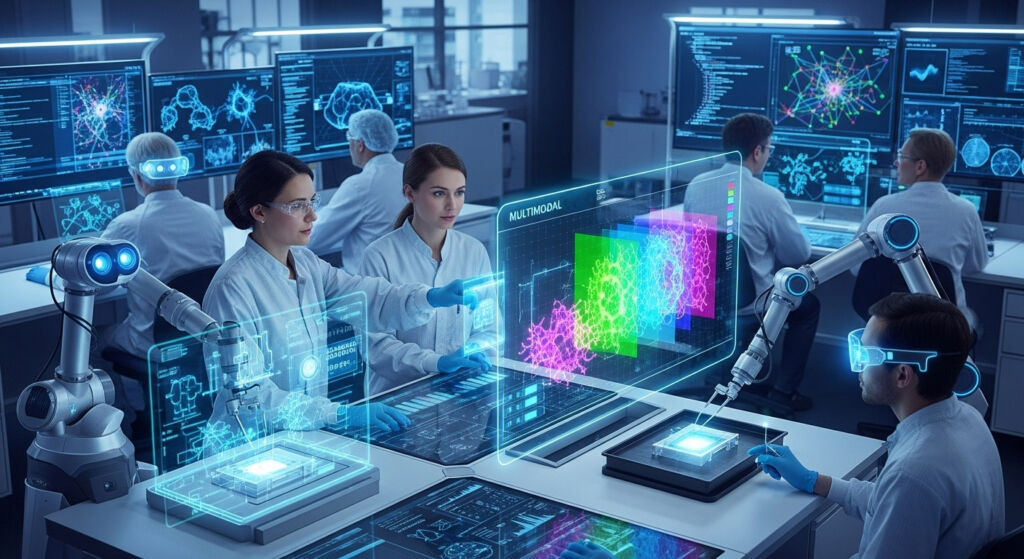
At the forefront are the “frontier models”—large-scale AI systems exhibiting advanced reasoning, planning, and multimodal capabilities. These models are moving beyond general applicability to become highly specialized for various domains. Imagine AI that can assist in intricate legal research, diagnose complex medical conditions, write sophisticated code, or even co-create artistic masterpieces. This specialization is key to unlocking AI’s potential in niche and demanding fields. (Sources: Microsoft, Morgan Stanley)
Significant leaps are also evident in Natural Language Processing (NLP) and Computer Vision. Models are becoming increasingly adept at understanding and generating human language with nuanced comprehension, while computer vision systems can interpret and analyze visual information with remarkable accuracy. Examples like OpenAI’s o1 and DeepSeek’s R1 showcase AI systems demonstrating human-like logical reasoning and achieving commercial viability through cost-effective solutions. (Sources: Microsoft, Crescendo.ai)

Reinforcement learning is another area of rapid progress, enabling the development of more autonomous agents. These agents can execute complex, multi-step workflows with minimal human oversight, paving the way for sophisticated automation in diverse applications. (Source: Microsoft)
The surge in “custom silicon”—specialized hardware designed for AI workloads—is also a critical factor. These tailored chips dramatically enhance AI performance, though they also present challenges related to hardware supply chains and geopolitical considerations. (Source: Morgan Stanley)

Furthermore, advancements in “multimodal AI” are breaking down data silos. These systems can process and integrate diverse data types—text, images, video, audio—creating a more holistic understanding of information. Coupled with “agentic AI,” which focuses on enhanced AI autonomy, these technologies promise to create more seamless and intuitive user experiences, bridging the gap between different forms of data and user interaction. (Sources: Microsoft, Google Cloud)
Section 2: The Latest AI News and Updates Setting the Stage for 2025
To truly grasp the momentum behind **Artificial Intelligence breakthroughs shaping 2025**, it’s essential to examine the most recent announcements and research milestones. The **latest AI news and updates 2025** paint a picture of rapid innovation and increasing accessibility.

Several key announcements highlight this progress:
- DeepSeek R1: This Chinese AI model has gained attention for its competitive performance and its potential to foster a more robust global AI ecosystem, often at reduced costs. (Source: Crescendo.ai)
- DeepCogito v2: Emerging as a powerful open-source alternative, DeepCogito v2 demonstrates advanced logical reasoning capabilities, even surpassing some proprietary models. Its open nature democratizes access to sophisticated AI. (Source: Crescendo.ai)
- Microsoft’s AI for Drug Discovery: Microsoft is leveraging AI for complex tasks like protein simulation, accelerating the process of drug discovery and enzyme engineering. This represents a significant step forward in applying AI to critical scientific challenges. (Source: Microsoft)
- Delphi-2M: This transformer-based model focuses on health predictions, specifically analyzing disease progression. Its development signifies a growing trend towards AI applications in personalized and predictive healthcare. (Source: Crescendo.ai)
- UCLA’s AI-Enhanced BCI: Researchers at UCLA have developed an AI-enhanced non-invasive brain-computer interface (BCI) capable of interpreting user intent in real-time. This breakthrough has profound implications for assistive technologies and human-computer interaction. (Source: Crescendo.ai)
- AI in Medical Imaging: Advancements continue in AI’s application to medical imaging, including miniature cameras for coronary diagnostics and machine learning for enhanced cardiac ultrasound analysis, promising earlier and more accurate diagnoses. (Source: Crescendo.ai)
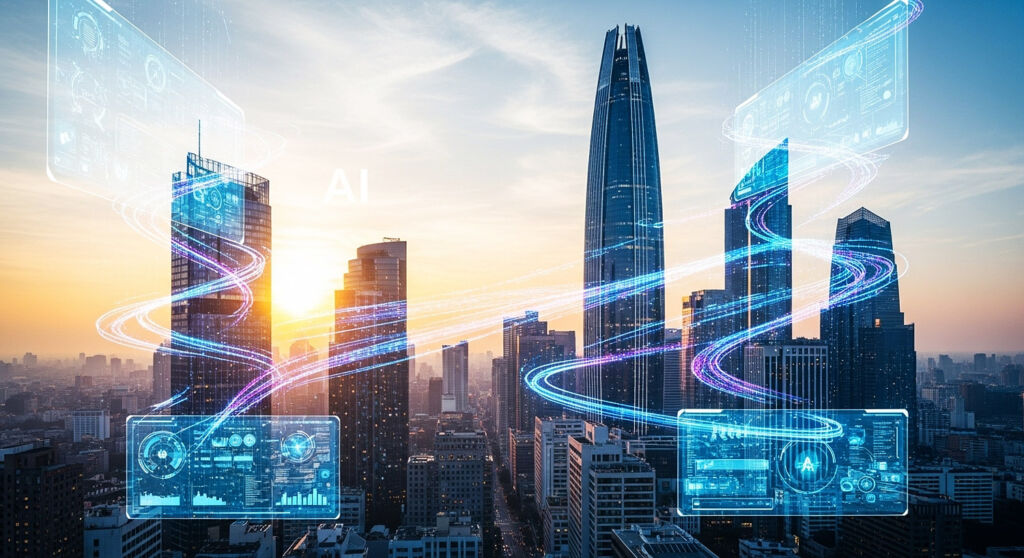
Discussions at prominent tech conferences, such as Morgan Stanley’s TMT Conference, underscore the intense industry focus on optimizing AI platforms. The race is on for developing superior reasoning capabilities, efficient custom hardware, robust cloud infrastructure, and more sophisticated agentic systems. This competitive environment fuels rapid innovation and development across the AI landscape. (Source: Morgan Stanley)
Section 3: The Generative AI Revolution and Its Impact Across Industries
Generative AI is no longer a niche technology; it’s a pervasive force fundamentally altering the operational fabric of countless industries. The **impact of generative AI on industries** is profound, touching everything from creative endeavors to complex business processes.
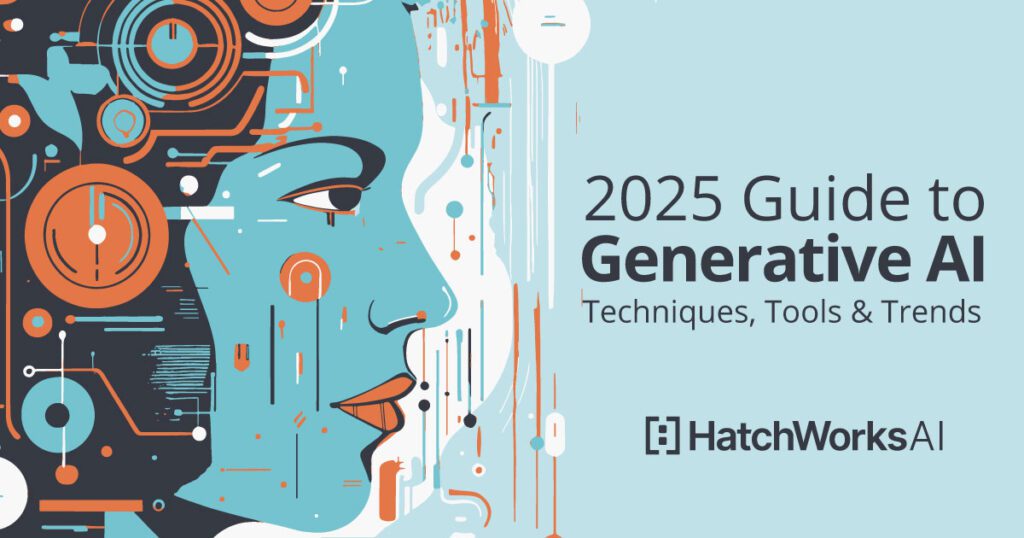
In the creative fields, generative AI is acting as a powerful co-creator, assisting artists, musicians, and writers. It can generate novel content, suggest creative directions, and even produce finished pieces, blurring the lines between human and machine creativity and opening up new artistic frontiers.
The realm of software development is experiencing a true revolution. AI co-pilots are now capable of generating, reviewing, and optimizing code, significantly accelerating development cycles. This not only boosts efficiency but also allows developers to focus on higher-level problem-solving and architectural design.
For marketing and customer service, generative AI offers unprecedented personalization. It powers hyper-targeted marketing campaigns, enables sophisticated virtual assistants that can handle complex queries, and facilitates seamless multilingual customer support, enhancing customer engagement and operational efficiency.
Overall, these applications are driving significant boosts in productivity and are increasingly being recognized for their potential to help narrow workforce skill gaps. As AI takes on more complex tasks, it can empower individuals with new capabilities and streamline workflows. (Source: Stanford HAI)

However, this revolution is not without its challenges. Critical questions surrounding job displacement due to automation, the complexities of intellectual property for AI-generated content, and the very definition of authenticity in a world of synthetic media are subjects of intense debate. Companies are actively experimenting with ways to balance the immense potential of generative AI with robust risk mitigation strategies and maintaining essential human oversight. The ethical implications and societal adjustments required are as significant as the technological advancements themselves.
Section 4: Accelerating Knowledge: AI-Driven Scientific Discoveries in 2025
AI’s ability to process vast datasets, identify complex patterns, and simulate intricate systems is profoundly accelerating the pace of scientific discovery. The promise of **AI driven scientific discoveries 2025** is immense, pushing the boundaries of human knowledge across numerous disciplines.

In medicine, AI is making critical contributions to disease prediction, significantly speeding up drug design pipelines, and enhancing medical imaging analysis. These applications promise faster, more precise healthcare interventions and a deeper understanding of human health. (Sources: Microsoft, Crescendo.ai)
Beyond healthcare, AI is proving invaluable in materials science and climate modeling. By simulating complex molecular interactions, AI aids in the discovery of novel, sustainable materials. Concurrently, its ability to analyze vast environmental datasets leads to more accurate and sophisticated climate models, crucial for understanding and addressing global environmental challenges. (Source: Microsoft)

AI is enabling scientists to tackle previously intractable problems. A prime example is AI’s role in decoding the complex dynamics of protein folding, a crucial step in drug development. Similarly, advanced transformer models are sifting through massive datasets in fields like astronomy and climate science, revealing hidden patterns and correlations that would be impossible for humans to detect. (Source: Microsoft)
Fundamentally, AI is acting as a powerful force multiplier for research. By automating laborious data analysis, generating hypotheses, and simulating experiments, AI tools are significantly increasing the throughput of scientific endeavors. This augmentation of human intellect allows researchers to achieve more, faster, and with greater insight. (Source: Microsoft)
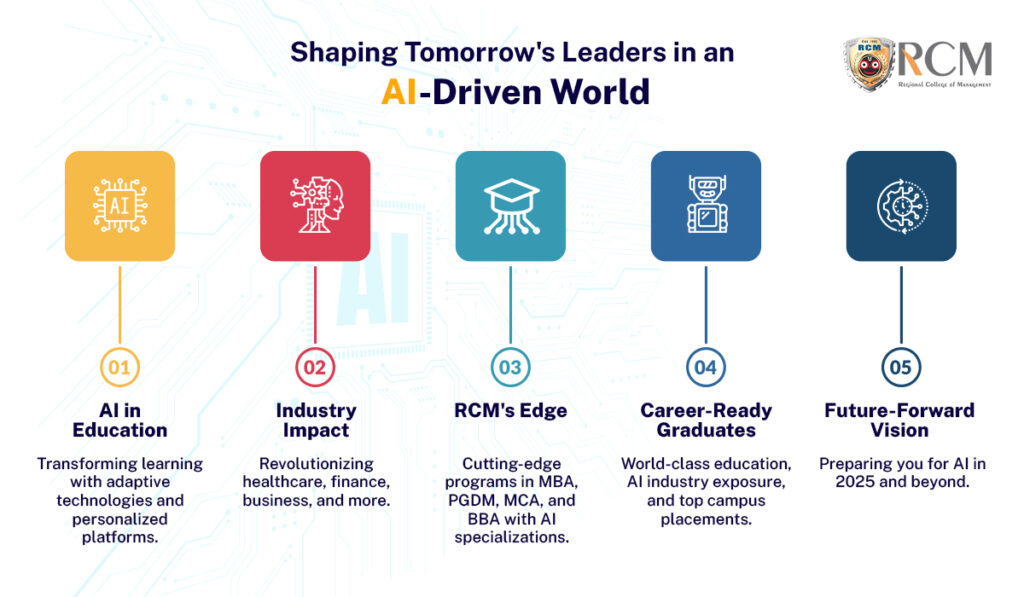
Section 5: The Ethical Compass: Navigating AI Ethics and Regulation Trends
As AI becomes more sophisticated and deeply integrated into society, the importance of **navigating AI ethics and regulation trends** cannot be overstated. Ensuring that AI develops and is deployed responsibly is paramount to maximizing its benefits while mitigating potential harms.

Several key ethical considerations demand our attention:
- Bias and Fairness: A persistent challenge is the presence of bias in AI systems, particularly evident in models used for health predictions. The diversity and representativeness of training datasets directly impact the accuracy and equity of AI outputs. Addressing this bias is crucial for fair and just AI applications. (Source: Crescendo.ai)
- Privacy: The vast amounts of data required to train advanced AI models raise significant concerns about data privacy. While synthetic data offers a potential solution by mimicking real-world data without containing actual personal information, careful governance and ethical data handling practices remain essential. (Source: Crescendo.ai)
- Job Displacement: The increasing automation capabilities of AI raise legitimate concerns about its impact on employment and the potential for job displacement across various sectors. Societal strategies for workforce adaptation and reskilling are becoming increasingly vital.
- Accountability: As AI systems become more autonomous, determining accountability for their actions presents a complex challenge. Establishing clear frameworks for responsibility is necessary, especially when AI decisions have significant consequences.
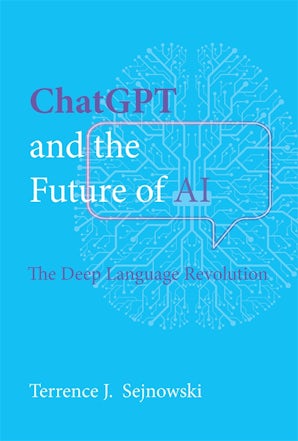
The regulatory landscape is rapidly evolving in response to these ethical considerations. Governments worldwide are grappling with how to govern AI effectively. Examples include the European Union’s comprehensive AI Act, which aims to establish a broad regulatory framework, and the U.S.’s approach of sector-specific rules. International discussions are also ongoing to develop common standards and best practices for AI development and deployment.
Amidst these challenges, the concept of “responsible AI” is gaining significant momentum. This approach emphasizes the development and use of AI in a way that is transparent, explainable, auditable, and guided by human oversight, particularly in critical applications. Prioritizing responsible AI ensures that innovation aligns with societal values and ethical principles. (Source: Microsoft)
Concluding Thoughts: The Relentless Evolution of AI
As we survey the landscape, it’s clear that the **Artificial Intelligence breakthroughs shaping 2025** are multifaceted and far-reaching. From the expanding capabilities of AI models to the accelerating pace of **AI driven scientific discoveries**, and the transformative **impact of generative AI on industries**, the progress is undeniable. Crucially, the ongoing efforts in **navigating AI ethics and regulation trends** highlight the growing awareness of the need for responsible development and deployment.
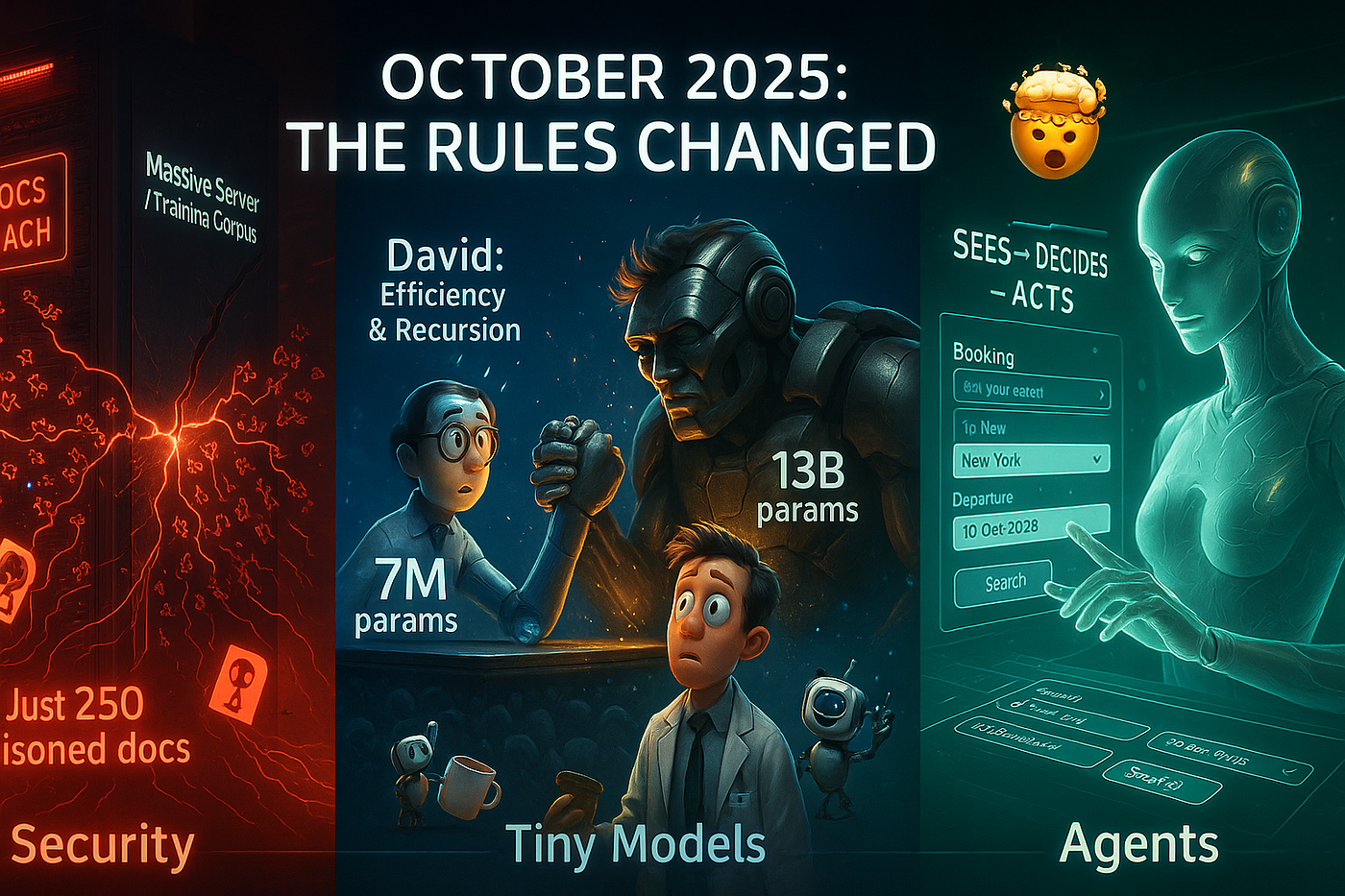
The world of AI is characterized by its relentless evolution. Its potential for both remarkable progress and significant societal challenges means that continuous adaptation and informed engagement are essential. Staying abreast of these dynamic advancements is not merely a matter of curiosity but a necessity for navigating the future effectively.
We encourage you to remain informed about these transformative developments. Subscribe for ongoing updates and join the vital conversation about shaping AI’s future responsibly. The journey of AI is one that will continue to define our era.
Explore more insights into AI’s impact:
- 10 Cutting-Edge AI Technologies Shaping the Future
- How AI Is Changing the World
- How AI Is Transforming Businesses
- 5 Ways to Use AI Strategies to Boost Productivity
- Game-Changing AI-Powered Productivity Apps
- Future of AI Chatbots in Customer Service
Frequently Asked Questions
- What are the most significant Artificial Intelligence breakthroughs expected in 2025?
- We anticipate breakthroughs in frontier models with advanced reasoning, significant leaps in NLP and computer vision, more autonomous agents via reinforcement learning, advancements in custom silicon for AI, and the integration of multimodal and agentic AI systems.
- How is generative AI impacting various industries?
- Generative AI is revolutionizing creative fields by assisting content creation, accelerating software development with AI co-pilots, enabling hyper-personalized marketing, and enhancing customer service with advanced virtual assistants. It’s also boosting overall productivity.
- What are some of the latest AI news and updates relevant for 2025?
- Key updates include models like DeepSeek R1 and DeepCogito v2, AI applications in drug discovery and medical imaging, advancements in brain-computer interfaces, and the ongoing industry focus on optimizing AI platforms for reasoning and hardware efficiency.
- How is AI contributing to scientific discoveries?
- AI is accelerating discoveries in medicine through disease prediction and drug design, in materials science for new sustainable materials, and in climate modeling for more accurate predictions. It’s enabling scientists to tackle complex problems and increasing research throughput.
- What are the main ethical concerns surrounding AI development?
- Major ethical concerns include AI bias and fairness, data privacy, potential job displacement due to automation, and establishing accountability for AI actions. The development of responsible AI frameworks aims to address these issues.
- What is the trend in AI regulation?
- There is a growing trend towards AI regulation, with initiatives like the EU’s AI Act and sector-specific rules in various countries. International discussions are focused on establishing common standards and promoting responsible AI practices.


